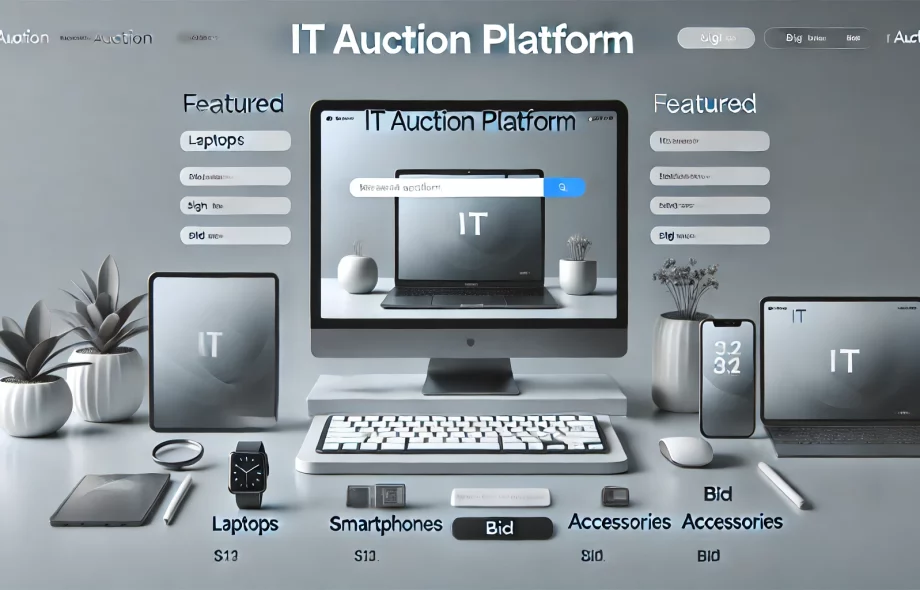The online auction industry has grown exponentially, offering a convenient platform for buyers and sellers to interact and transact. However, with the rise in online activities, the importance of trust and security has never been more critical. For auction websites, ensuring a secure environment where users feel confident to engage is paramount. This blog explores key strategies and technologies that can enhance user trust and security in auction website development.
Introduction
Online auctions have revolutionized the way people buy and sell items, providing a dynamic and competitive marketplace accessible from anywhere in the world. However, the anonymity and remote nature of online transactions can raise concerns about trust and security. For auction websites to thrive, they must implement robust security measures and build a trustworthy platform that users can rely on.
1. Implementing Robust Security Measures
a. Secure Payment Gateways
One of the most critical aspects of auction website development is the integration of secure payment gateways. Ensuring that all financial transactions are encrypted and protected from fraud is essential. Using reputable payment processors like PayPal, Stripe, or other well-known services can provide an extra layer of security. Additionally, implementing multi-factor authentication (MFA) for transactions can significantly reduce the risk of unauthorized access.
b. Data Encryption
To protect user information, an auction website builder should employ advanced encryption techniques. Encrypting sensitive data, both in transit and at rest, ensures that even if data is intercepted or accessed without authorization, it remains unreadable and secure. Utilizing SSL certificates and ensuring that all communications between users and the website are encrypted can prevent data breaches.
c. Regular Security Audits
Conducting regular security audits and vulnerability assessments can help identify potential weaknesses in the system. These audits should include penetration testing, code reviews, and compliance checks with security standards. By continuously monitoring and updating security protocols, auction websites can stay ahead of emerging threats.
2. Building User Trust Through Transparency
a. Clear and Honest Communication
Transparency is key to building trust with users. When you build an auction website, it’s essential to provide clear and honest information about policies, terms of service, and privacy practices. Detailed descriptions of auction items, including high-quality images and videos, can also help users make informed decisions.
b. Seller Verification and Rating Systems
Implementing a thorough seller verification process can enhance trust among buyers. Verifying the identity and legitimacy of sellers before they can list items for auction reduces the risk of fraud. Additionally, a robust rating and feedback system allows buyers to share their experiences, helping others make informed decisions and holding sellers accountable for their actions.
c. Dispute Resolution Mechanisms
Even with robust security measures in place, disputes can arise. Providing a clear and efficient dispute resolution process reassures users that their concerns will be addressed fairly. This can include dedicated support teams, clear guidelines on how disputes are handled, and mechanisms for mediation and resolution.
3. Leveraging Technology for Enhanced Security
a. Blockchain Technology
Blockchain technology offers a decentralized and secure way to record transactions. By implementing blockchain, auction website builders can create an immutable ledger of transactions that enhances transparency and trust. Smart contracts can automate and enforce auction rules, ensuring that all parties adhere to the agreed terms without the need for intermediaries.
b. Artificial Intelligence (AI) and Machine Learning
AI and machine learning can play a significant role in enhancing security on auction websites. These technologies can be used to detect fraudulent activities by analyzing user behavior and identifying unusual patterns. AI-driven chatbots can also provide real-time support, helping users navigate the platform and addressing security concerns promptly.
c. Biometric Authentication
Incorporating biometric authentication methods, such as fingerprint scanning or facial recognition, can add an extra layer of security. These methods are more secure than traditional passwords and can prevent unauthorized access to user accounts.
4. Educating Users About Security
a. Security Awareness Programs
Educating users about potential security threats and how to protect themselves is crucial. Auction website developers can offer security awareness programs, including tips on creating strong passwords, recognizing phishing attempts, and safeguarding personal information. Regular updates and reminders about security best practices can empower users to take an active role in protecting their accounts.
b. Providing Resources and Support
Offering comprehensive resources and support can help users feel more secure. This can include detailed FAQs, step-by-step guides on using security features, and access to support teams that can assist with any security-related concerns. Making these resources easily accessible demonstrates a commitment to user security and trust.
Conclusion
Enhancing user trust and security is essential for the success of auction websites. By implementing robust security measures, building transparency, leveraging advanced technologies, and educating users, auction platforms can create a safe and trustworthy environment. As the online auction industry continues to evolve, prioritizing security and trust will remain a cornerstone of sustainable growth and user satisfaction.
By focusing on these key areas, auction website builders can not only protect their users but also foster a loyal and engaged community that drives the success of the platform.



 :
:









